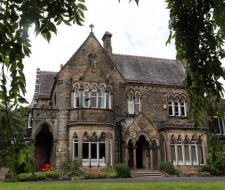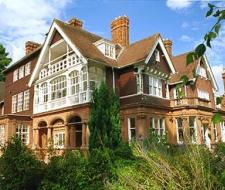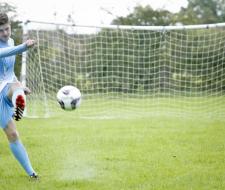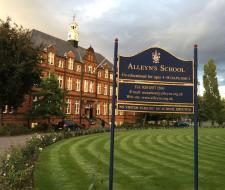Secondary schools in England UK for international students
- Details about secondary education in England and Great Britain
- British Secondary Education - Private Boarding Schools and Day Schools
- List of disciplines at Secondary education in the UK
- How is the life of foreign teenagers organized at the secondary boarding school in Great Britain?
- Schools in England - educational process
-
 from 13500.00 £ / yearProgram namedateAgeFeesShow all courses (2)Middle schoolLast booking 6 weeks agoAll year round11-15
from 13500.00 £ / yearProgram namedateAgeFeesShow all courses (2)Middle schoolLast booking 6 weeks agoAll year round11-15 -
 from 11460.00 £ / term
from 11460.00 £ / term -
 from 4350.00 £ / term
from 4350.00 £ / term -
 from 11755.00 £ / term
from 11755.00 £ / term -
 from 13580.00 £ / termProgram namedateAgeFeesShow all courses (7)Middle schoolLast booking 5 weeks agoAll year round11-14
from 13580.00 £ / termProgram namedateAgeFeesShow all courses (7)Middle schoolLast booking 5 weeks agoAll year round11-14 -
 Players move to professional clubs after graduation
Players move to professional clubs after graduation United KingdomLeedsCurrently watching: 1from 8050.00 £ / termProgram namedateAgeFeesShow all courses (3)Middle schoolLast booking 6 weeks agoAll year round11-15
United KingdomLeedsCurrently watching: 1from 8050.00 £ / termProgram namedateAgeFeesShow all courses (3)Middle schoolLast booking 6 weeks agoAll year round11-15 -
 In 2021 - 84% of A Level students achieved A*-B
In 2021 - 84% of A Level students achieved A*-B United KingdomCanterburyCurrently watching: 2from 12300.00 £ / termProgram namedateAgeFeesShow all courses (3)Middle schoolLast booking 3 weeks agoAll year round11-14
United KingdomCanterburyCurrently watching: 2from 12300.00 £ / termProgram namedateAgeFeesShow all courses (3)Middle schoolLast booking 3 weeks agoAll year round11-14 -
 from 10374.00 £ / term
from 10374.00 £ / term -
 from 6950.00 £ / termProgram namedateAgeFeesShow all courses (3)Middle schoolLast booking 4 weeks agoAll year round11-16
from 6950.00 £ / termProgram namedateAgeFeesShow all courses (3)Middle schoolLast booking 4 weeks agoAll year round11-16 -
 from 6470.00 £ / term
from 6470.00 £ / term
Today, many foreign students choose England as the best country for getting high-quality education abroad. SMAPSE offers more than 70 best secondary schools in England and Great Britain where foreign students can get prestigious secondary education. Due to the list of TOP-70 British secondary schools, students will definitely find the most appropriate option. FREE enrollment services at partner institutions, the number of places is limited. Assistance in the selection of institutions, advice on what documents need to be collected, what are the requirements for filing and terms of admission. Please, don't hesitate to contact SMAPSE experts, as they are always ready to answer all your questions.
Alternative destinations
Details about secondary education in England and Great Britain
Foreign students can obtain prestigious British secondary education in the following educational institutions, which are divided into two types, namely public and private. More than 500 private secondary schools are successfully functioning on the territory of the UK, the specialization of which concerns, among other things, the provision of educational services to foreign children and adolescents from different countries of the world.
Public schools in England is financed from the budgetary funds of the UK. Private schools in England is working for a fee. At the same time, the cost of education is determined by the characteristics of the school:
- The rating of the educational institution;
- Level of prestige;
- Geographical location, etc.
In addition to public and private schools in England, preparatory courses have been developed aimed at children and adolescents with a low level of English. Also, special mention deserves summer language programs and preparatory classes aimed at effective preparation for admission to advanced schools in the UK. The duration of the educational program is from 1 month. Completing these preparatory language programs significantly improves English proficiency, as well as deepening the knowledge of the academic subjects required for admission to British high schools.
Main advantage of British school, namely public or private, is small educational groups.
List of different stages of secondary education in the UK:
- Preschool education -from 3 to 5 years old;
- Primary School - from 5 to 11 years old;
- High school - from 11 to 18 years old.
A separate format of education is practiced on the territory of England. At the same time, the overwhelming majority of secondary schools in Great Britain practice a mixed learning format.
British Secondary Education - Private Boarding Schools and Day Schools
International teenagers can enroll in the primary and secondary private schools In the UK, which are divided into two types:
Boarding school - within the walls of such educational institutions, the educational process and accommodation of foreign students is provided, at the same time, round-the-clock supervision of students by the educational staff is guaranteed.
Day school provides for foreign schoolchildren to live in host families or in homes of official representatives. These schools are focused on independent adolescents.
Elite UK schools is famous for its strict discipline. There are no differences between coeducational and separate British schools in terms of learning and academic performance.
The majority of the leading private schools in England operate as boarding houses and boarding schools, accepting both British children and foreign adolescents. British boarding schools usually take the high positions in international rankings. In terms of geographic location, top boarding schools are located in:
- Cambridge;
- London;
- Oxford;
- York;
- Brighton.
The key difference between public and private boarding schools in the UK is due to the right to develop their own educational programs and teaching methods, while, along with public education programs, private educational institutions received the appropriate accreditation issued by the authorized institution.
List of main advantages of the top rated private boarding schools in the UK:
- Small educational groups - not more than 12 international students;
- Teachers apply an individual approach to each student within the framework of teaching;
- High educational results by foreign adolescents.
Upon reaching the age of 11, a foreign teenager can enroll in the secondary private schools in England.
List of disciplines at Secondary education in the UK
- Mathematics;
- English language and literature;
- Natural Sciences;
- Foreign languages;
- History;
- Geography;
- Music art;
- Information and computer technologies;
- Art;
- Theatrical and dramatic skills.
The curriculum of every prestigious boarding school in England provides for the physical education of schoolchildren and various sports sections. Some sports activities are compulsory, others are held as electives.
List of the most popular sport activities among students in the UK:
- Horse riding;
- Cricket;
- Football;
- Rugby;
- Hockey;
- Netball;
- Tennis.
Foreign teenager can count on scholarships or financial grants according to excellent performance in academic subjects.
How is the life of foreign teenagers organized at the secondary boarding school in Great Britain?
Private boarding schools in England are real student campuses. School infrastructure is well developed:
- Administrative and academic buildings;
- Students residences;
- Modern sports grounds;
- Gardens;
- Parks;
- Concert halls.
The school territory is under round-the-clock security.
With regard to accommodation issues, foreign teenagers live in comfortable residences, dormitories, which are divided into rooms. As a rule, students live in 2-4 bed rooms. At the same time, high school students enrolled in the Sixth Form program live in private rooms. On an ongoing basis, there are educators with the students who, if necessary, will assist in resolving conflict situations on the territory of the school residence.
There is usually a medical center , inpatient treatment, spacious canteens on the school territory.
Foreign teenagers also need to become familiar with such a topic as guardianship in the UK. Guardianship is required for foreign teenagers under the age of 18 who receive an elite secondary education in England.
List of responsibilities of a typical guardian:
- To represent the interests of the student in British administrative institutions;
- Look after the student;
- The guardian provides accommodation for the teenager for the period of weekends and vacations or ilness;
- Provides constant communication with parents;
- Attends school events and meetings;
- Provides control over the student's financial expenses, pays bills and provides pocket expenses.
Schools in England - educational process
Compulsory education is established for all children from 5 to 16 years old. The initial period of study falls on the age of students from 5 to 10 years. At the end of this stage, the SAT or Common Entrance Examination is organized. Foreign adolescents aged 10 to 16 years pass the stage of obtaining secondary education. Alternatively, it is possible to obtain a GNVQ professional qualification certificate.
Upon reaching the age of 14-15, foreign adolescents are given the opportunity to enroll in upper school or high school educational programs focused on effective pre-university education.
Educational programs A-level, BTEC, International Baccalaureate and Foundation have been developed for international adolescents who received a certificate at home.
The academic year in England is divided into three terms:
- Autumn - lasts from September to December;
- Spring - from January to March;
- Summer - lasts from April to early June.
List of typical holidays at UK schools:
- Christmas;
- Easter (from 2 to 3 weeks);
- Summer holidays (6 weeks).
Classes are held on weekdays, from Monday to Friday. Educational day usually lasts held from 9 a.m. to 3 p.m., with lunch and dinner breaks. Educational excursions, exciting large-scale events, sports activities are organized on Saturday. International students can spend time in creative studios, as well as at various electives.
What is a secondary school in the UK?
Secondary school, also known as secondary school or high school, is an educational institution that provides education for students aged around 11-16 years. This stage of education in the UK usually includes primary (11-14 years) and secondary (14-16 years).
What subjects are studied in middle school?
In secondary school, pupils study a wide range of subjects including math, English language and literature, science (usually physics, chemistry and biology), geography, history, art, music, physical education and religious education.
Can I choose the subjects to study in secondary school?
After GCSE, pupils can choose subjects to study in senior courses such as A-levels or BTECs. These subjects can help them prepare for university or a future career.
Is it compulsory to wear a school uniform to school?
Most schools in the UK have a uniform that pupils are required to wear. This may include skirts or pants, shirts, ties and other items, and its purpose is to maintain standards of dress and create a sense of belonging to the school.
How are students evaluated in middle school?
At the end of secondary school, after Year 11, pupils take GCSE (General Certificate of Secondary Education) examinations, which are graded on a scale from A* to G. GCSE grades are important for a pupil's future education and career.
Can international students attend secondary school in the UK?
Yes, the UK accepts international students. They can attend British schools when they come to study on an exchange program, as well as international schools.
What are the rules about cell phones at school?
The rules about cell phones in British schools can vary, but generally they are banned during lessons as they can distract pupils and interfere with the learning process. However, many schools do allow the use of cell phones outside of lessons and in designated areas.
Can students work while studying?
Pupils aged 16 and over are entitled to work during their studies, but with certain restrictions on the number of hours they can work so as not to interfere with the learning process. Working while studying can help pupils gain experience and practice.
What are the career guidance opportunities at school?
Many UK schools provide careers advice and activities to help students choose a future career. These may include one-to-one consultations with professionals in the field, as well as attendance at careers fairs and training fairs.
Is there a possibility of home schooling?
Yes, there is a homeschooling option known as "home schooling". However, a homeschooling program must meet certain standards. Parents usually play a key role in educating their children at home.
General statistics on education in the UK-ratings, specializations, universities
Best boarding schools in England - 2026 Smapse rankings
| 1 | Cardiff Sixth Form College |
| 2 | Sevenoaks School |
| 3 | Queen Ethelburga's College |
| 4 | Brighton College |
| 5 | The National Mathematics and Science College NMSC |
| 6 | Concord College |
| 7 | Westbourne School |
| 8 | Wellington College |
| 9 | Rossall School |
| 10 | d'Overbroeck's College |
| 11 | Dulwich College |
| 12 | Fettes College |
| 13 | Stonar School |
| 14 | Wycliffe College |
| 15 | Lucton School |
| 16 | King's School Canterbury |
| 17 | ACS School Cobham |
| 18 | Hurtwood House |
| 19 | Uppingham School |
| 20 | Scarborough College |
| 21 | King's College St Michael’s |
| 22 | Mill Hill School |
| 23 | Windermere School |
| 24 | Clifton College |
| 25 | Badminton School |
| 26 | Oakham School |
| 27 | Oundle School |
| 28 | Stowe School |
| 29 | Cheltenham College |
| 30 | Bromsgrove School |
| 31 | Sidcot School |
| 32 | Prior Park College |
| 33 | Millfield School |
| 34 | Oswestry School |
| 35 | Caterham School |
| 36 | City of London Freemen’s School |
| 37 | Buckswood School |
| 38 | Brooke House College |
| 39 | Taunton School |
| 40 | St Clare's Oxford |
| 41 | Repton School |
| 42 | Royal Russell School |
| 43 | King's Ely |
| 44 | Leys Cambridge |
| 45 | Leighton Park |
| 46 | Bedford School |
| 47 | Fyling Hall |
| 48 | Royal Hospital School |
Best boarding schools in England and UK 2026
| № | A/A* % | Name | Day/Board | Boy/Girl | Day GBP | Board GBP |
|---|---|---|---|---|---|---|
| 1 | 88.92 | Westminster School | Both | Co-ed (Boys Only 7-16) | 29,709 | 39,252 |
| 2 | 88.68 | Cardiff Sixth Form College | Both | Co-ed | 16,600 | 42,750 |
| 3 | 83.54 | Oxford International College | Both | Co-ed | 21,000 | 42,000 |
| 4 | 83.06 | Brighton College | Both | Co-ed | 24,420 | 44,460 |
| 5 | 81.43 | Concord College | Both | Co-ed | 14,280 | 39,900 |
| 6 | 71.25 | Ruthin School | Both | Co-ed | 14,000 | 34,500 |
| 7 | 64.12 | City of London Freemen's School | Both | Co-ed | 18,279 | 30,816 |
| 8 | 64.11 | Oundle School | Both | Co-ed | 23,505 | 36,690 |
| 9 | 61.74 | Marlborough College | Both | Co-ed | 37,815 | |
| 10 | 60.87 | Rugby School | Both | Co-ed | 22,437 | 35,760 |
| 11 | 60.00 | Wellington College | Both | Co-ed | 30,375 | 41,580 |
| 12 | 59.06 | Caterham School | Both | Co-ed | 18,900 | 36,570 |
| 13 | 58.33 | Hurtwood House | Both | Co-ed | 28,950 | 43,428 |
| 14 | 58.22 | Epsom College | Both | Co-ed | 25,266 | 37,263 |
| 15 | 55.71 | St Peter's School | Both | Co-ed | 18,075 | 32,280 |
| 16 | 54.80 | Uppingham School | Both | Co-ed | 26,313 | 37,590 |
| 17 | 54.17 | Bellerbys College Cambridge | Both | Co-ed | 27,060 | 38,940 |
| 18 | 53.71 | Abbey College Cambridge | Both | Co-ed | 29,000 | |
| 19 | 53.40 | Bishop's Stortford College | Both | Co-ed | 19,839 | 31,923 |
| 20 | 53.37 | d'Overbroeck's Oxford | Both | Co-ed | 23,850 | 38,700 |
| 21 | 53.19 | Canford School | Both | Co-ed | 27,723 | 36,420 |
| 22 | 53.00 | Christ's Hospital | Both | Co-ed | 23,310 | 35,850 |
| 23 | 52.01 | Ashford School | Both | Co-ed | 16,800 | 37,500 |
| 24 | 51.14 | Dean Close School | Both | Co-ed | 24,600 | 37,413 |
| 25 | 51.00 | Monkton Senior School | Both | Co-ed | 20,910 | 33,345 |
| 26 | 49.50 | Dauntsey's School | Both | Co-ed | 18,990 | 36,300 |
| 27 | 48.51 | Cheltenham College | Both | Co-ed | 28,575 | 37,770 |
| 28 | 48.43 | West Buckland School | Both | Co-ed | 15,060 | 33,660 |
| 29 | 48.06 | Wells Cathedral School | Both | Co-ed | 18,801 | 31,464 |
| 30 | 47.66 | King's Ely | Both | Co-ed | 21,459 | 39,441 |
A-level rankings 2026
| # | A + A* % | Name | Day/Board | Boy/Girl | Day £ | Board £ |
|---|---|---|---|---|---|---|
| 1 | 92.11 | Oxford International College | Both | Co-ed | 23,375 | 44,750 |
| 2 | 90.28 | Cardiff Sixth Form College | Both | Co-ed | 17,700 | 46,450 |
| 3 | 85.35 | St Paul's Girls' School | Day | Girls | 27,831 | |
| 4 | 83.54 | Westminster School | Both | Co-ed (Boys Only 13 - 16) | 31,491 | 41,607 |
| 5 | 83.52 | Concord College | Both | Co-ed | 14,709 | 41,900 |
| 6 | 82.40 | Magdalen College School | Day | Boys (Co-ed 6th form) | 18,939 | |
| 7 | 82.14 | St Paul's School | Both | Boys | 25,908 | 38,991 |
| 8 | 82.00 | Ruthin School | Both | Co-ed | 14,500 | 40,500 |
| 9 | 81.51 | Winchester College | Boarding | Boys | 41,709 | |
| 10 | 81.20 | City of London School for Boys | Day | Boys | 18,939 | |
| 11 | 80.93 | Brighton College | Both | Co-ed | 25,410 | 50,040 |
| 12 | 80.60 | Wycombe Abbey School | Boarding | Girls | 30,270 | 40,350 |
| 13 | 80.30 | Eton College | Boarding | Boys | 42,501 | |
| 14 | 79.37 | King's College School - Wimbledon | Day | Boys (Co-ed 6th form) | 22,335 | |
| 15 | 79.15 | Perse Upper School | Day | Co-ed | 17,994 | |
| 16 | 78.41 | Hampton School | Day | Boys | 20,745 | |
| 17 | 77.82 | Godolphin & Latymer School | Day | Girls | 22,595 | |
| 18 | 77.67 | Guildford High School for Girls | Day | Girls | 17,733 | |
| 19 | 77.65 | Oxford High School GDST | Day | Girls | 16,089 | |
| 20 | 77.49 | St Mary's School - Ascot | Both | Girls | 28,590 | 40,140 |
| 21 | 77.14 | City of London School for Girls | Day | Girls | 19,212 | |
| 22 | 76.53 | Lady Eleanor Holles School | Day | Girls | 20,802 | |
| 23 | 76.15 | South Hampstead High School | Day | Girls | 19,494 | |
| 24 | 75.84 | Haberdashers' Aske's Boys' School, Elstree | Day | Boys | 21,159 | |
| 25 | 75.82 | Highgate School | Day | Co-ed | 21,600 | |
| 26 | 75.28 | Merchant Taylors' School | Day | Boys | 21,526 | |
| 27 | 75.21 | King Edward VI High School for Girls | Day | Girls | 13,338 | |
| 28 | 74.89 | University College School | Day | Boys (Co-ed 6th form) | 21,090 | |
| 29 | 74.61 | Manchester Grammar School | Day | Boys | 12,930 | |
| 30 | 74.18 | Haberdashers' Aske's School for Girls | Day | Girls | 19,311 |
Top 21 boarding colleges in England 2026
| 1 | Cardiff Sixth Form College |
| 2 | National Mathematics and Science College |
| 3 | Abbey College Cambridge |
| 4 | d'Overbroeck's College |
| 5 | MPW London |
| 6 | CATS Cambridge |
| 7 | Kensington Park |
| 8 | DLD London |
| 9 | King's College St Michael’s |
| 10 | Bellerbys Cambridge |
| 11 | Chelsea Independent College |
| 12 | MPW Cambridge |
| 13 | Bellerbys Brighton |
| 14 | CATS London |
| 15 | St Clare's Oxford |
| 16 | Bishopstrow College |
| 17 | CATS Canterbury |
| 18 | Bellerbys London |
| 19 | Ealing Independent College |
| 20 | Cambridge Tutors College |
| 21 | Abbey Manchester |
Secondary education in the UK
| World Ranking | 1 |
|---|---|
| Foreign students | 20% |
| Minimum age | 4 years+ (age 11-14) |
| Tuition language | English |
| Minimum English level | beginner&higher (depends on the school) |
| Tuition cost | £17,000-50,000 |
| Cost of living (year) | £10,000-25,000 |
| Mandatory subjects | English, Mathematics, Science |
Learning programs-summary information
| Name | Meaning | Equivalent | Min. age | Duration, years |
Next stage | Cost |
|---|---|---|---|---|---|---|
| GCSE | General certificate of secondary education | secondary education (non-accomplished) | 14 | 1–2 | A-Levels | 15,000 USD+ |
| A-Levels | Advanced level | secondary education (accomplished) | 16 | 2 | University | 15,000 USD+ |
| BTEC | Business and Technology Education Board | secondary special education | 14 | 2–3 | University/ work | 15,000 USD+ |
| Oxbridge Preparation | Preparing for Oxford and Cambridge | secondary education (accomplished) | 17 | 1 | University | 15,000 USD+ |
| International Baccalaureate | International baccalaureate | secondary education (accomplished) | 16 | 2 | University | 18,000 USD+ |
| Foundation/ Pathway Year | Preparatory year | admission to the 1st year of university | 17 | 1 | University | 14,000 USD+ |
| NCUK | The Northern consortium | 2 year university | 17,5 | 1 | 2 year University of NCUK | 13,000 USD+ |
| Special Preparation (Medics/Math/Business) | Specialized training | - | 14 | optional | optional | 4,000 USD+ |
| Academic English | Academic English | Language school | 8 + | 6–12 months | School or University | 8,000 USD+ |
Advantages and disadvantages of English schools
| Advantages | Disadvantages |
|---|---|
| The opportunity to enter the best universities in England, USA, Canada, Switzerland, Europe, the world | Expensive |
| High quality of education and academic standards | Strong workload |
| Perfect English after graduation | The need to change the social environment; it takes time to adapt |
| Useful contacts | The difficulty of choosing the most suitable school for the child, requires a qualified specialist |
